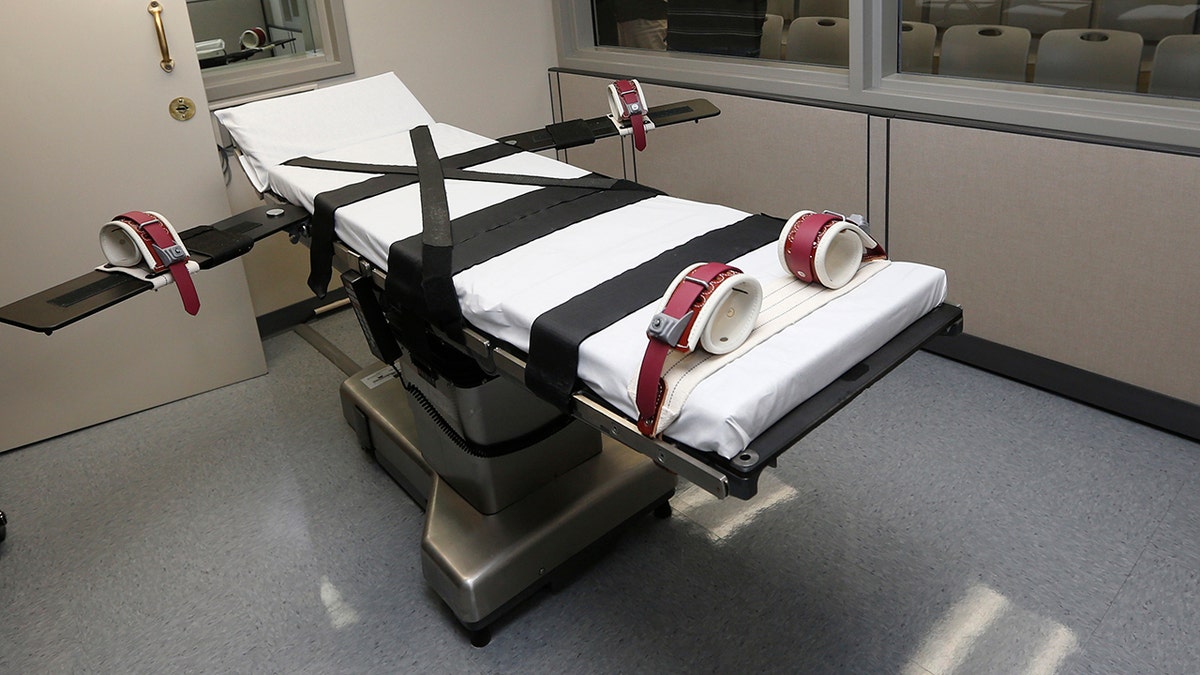White House press secretary Karine Jean-Pierre said Friday that the Biden administration is “deeply troubled” by the experimental execution of a man in Alabama through the use of nitrogen gas and expressed concerns about the death penalty.
Kenneth Eugene Smith, 58, was executed Thursday night by breathing pure nitrogen gas through a face mask, a controversial method of capital punishment used for the first time in the U.S. that causes oxygen deprivation. The execution method, which has been slammed for being inhumane and a form of torture, comes after a last-minute appeal to halt the death penalty from being carried out in this case was rejected by the Supreme Court.
“The reports of Kenneth Smith and his death last night obviously is very troubling,” Jean-Pierre told reporters at a press briefing. “It is very troubling to us as an administration, it is very troubling to us here at the White House.”
This was the first time that a new execution method had been used in the U.S. since lethal injection, which is now the most commonly used form of capital punishment, was introduced in 1982.
ALABAMA DEATH ROW INMATE EXECUTED WITH NITROGEN GAS, NATION’S FIRST BY A NEW METHOD IN 42 YEARS
Kenneth Eugene Smith, 58, was the first inmate to be put to death by nitrogen hypoxia. (Alabama Department of Corrections via AP)
The execution lasted about 22 minutes and Smith appeared to remain conscious for several minutes. For at least two minutes, he appeared to shake and writhe on the gurney, sometimes pulling against the restraints, before several minutes of heavy breathing until breathing was no longer perceptible.
“The president has long said and has had deep deep concerns with how the death penalty is implemented and whether it is consistent … with our values,” she continued. “So, we are deeply troubled by it, by Kenneth Smith’s death. And so, you know, it is just troubling to hear.”
Smith faced the death penalty for the 1988 murder-for-hire stabbing death of a preacher’s wife, Elizabeth Sennett, who was found dead in the home she shared with her husband in Colbert County. Prosecutors said Smith was one of two men who were each paid $1,000 to kill Sennett on behalf of her husband, who was in huge debt and wanted to collect insurance money.
Her husband, Charles Sennett Sr., killed himself when the investigation began looking at him as a possible suspect. The other man convicted in the killing was executed in 2010.
Alabama attempted to execute Smith by lethal injection in 2022 but failed to carry it out because of issues with inserting an IV into his veins, the second time in two months and the third since 2018 that the state was unsuccessful in putting an inmate to death.
ALABAMA DEATH ROW INMATE FACING NITROGEN HYPOXIA EXECUTION LOSES LAST DITCH APPEAL

White House press secretary Karine Jean-Pierre said Friday that the White House is “deeply troubled” by Kenneth Eugene Smith’s execution by nitrogen gas. (JIM WATSON/AFP via Getty Images)
Republican Gov. Kay Ivey announced the day after Smith’s failed execution that executions would be paused to allow an internal review of lethal injection procedures. Lethal injections in Alabama resumed last summer.
In Smith’s last-minute appeal to the Supreme Court on Thursday to block his execution, he argued that his death sentence should not be carried out over the potential for the state to botch the procedure following the first failed attempt to put him to death. The court rejected the appeal but Justice Sonia Sotomayor wrote in a dissenting opinion that Alabama was using Smith as a “guinea pig” to test a new method of execution.
The United Nations and European Union condemned Smith’s experimental execution.
“He was writhing and clearly suffering,” U.N. Human Rights Office spokesperson Ravina Shamdasani said at a U.N. briefing. “Rather than looking for novel, untested methods to execute people, let’s just bring an end to the death penalty. This is an anachronism that doesn’t belong in the 21st century.”
The U.N. Human Rights Office previously warned that it believed the capital punishment method “could breach the prohibition on torture or other cruel, inhuman or degrading treatment or punishment.”

Breathing pure nitrogen gas through a face mask, a controversial method of capital punishment used for the first time in the U.S., has been criticized for being inhumane. (AP Photo/Sue Ogrocki, File)
CLICK HERE TO GET THE FOX NEWS APP
The European Union said in a statement Friday that nitrogen hypoxia was “particularly cruel and unusual punishment” and urged states to “move toward abolition, in line with the worldwide trend.”
In 2021, Attorney General Merrick Garland imposed a moratorium on the federal death penalty, a move that President Biden supports.
“[Smith’s execution] underscores why the president supports the attorney general’s moratorium on the federal death penalty, pending review of the policies and procedures governing its use,” Jean-Pierre said Friday.
But despite the moratorium, federal prosecutors said earlier this month they will seek the death penalty against the gunman who in May 2022 killed 10 black people at a grocery store in Buffalo, New York.
“The President always has had deep concerns with how the death penalty is implemented,” Jean-Pierre said. “He always has.”